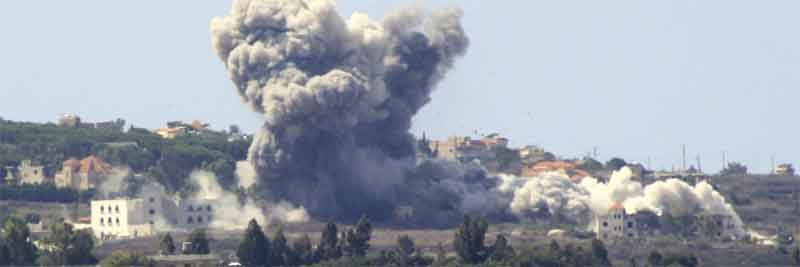
The Israeli military launched a wave of deadly airstrikes in eastern and southern Lebanon on Monday, the latest escalatory step toward a full-blown war following Israel’s mass detonations of electronic devices that killed dozens of people last week.
Lebanon’s Health Ministry says the death toll in Israeli attacks across Lebanon today has gone up to 100.
More than 400 people have also been wounded.
The Lebanese armed group says in a statement it launched dozens of rockets at several Israeli military posts “in response to the Israeli attacks that targeted the south and Bekaa areas”.
Hezbollah fighters bombed two north Israel military positions and the “Rafael defence industry complexes” north of the city of Haifa, it added.
The Lebanese health ministry ordered hospitals in the southern part of the country to temporarily halt elective surgeries to make room for victims of Israel’s latest barrage of airstrikes, which came just hours after U.S. Defense Secretary Lloyd Austin expressed his “support for Israel’s right to defend itself from Lebanese Hezbollah attacks” in a conversation with his Israeli counterpart, Yoav Gallant.
While Austin also stressed “the importance of finding a diplomatic solution,” he did not signal any potential change to the U.S. policy of unconditional support for Israel as it continues to bombard the Gaza Strip and expands its attacks on Lebanon—military campaigns that would likely be impossible to sustain without the help of U.S. weaponry. Analysts have argued that ongoing U.S. support for Israel’s war on Gaza has enabled the intensifying attacks on Lebanon.
António Guterres, secretary-general of the United Nations, warned in a CNN interview on Sunday that all-out war would risk “the possibility of transforming Lebanon into another Gaza,” which he said would be “a devastating tragedy for the world.”
Assal Rad, a Middle East analyst and historian, wrote in response that “Israel is using the same script in Lebanon that it used to justify the total destruction and mass slaughter in Gaza because they faced no consequences.”
“U.S. weapons continue to flow and the media continues to whitewash,” Rad added.
Israel’s airstrikes came a day after Hezbollah fired around 150 rockets at Israel, most of which were intercepted. Hezbollah said the rocket fire was an “initial” response to last week’s device attacks, which killed around 40 people and wounded thousands.
Air-raid sirens went off in northern Israel on Monday amid the IDF’s bombardment of Lebanon.
Subscribe to Our Newsletter
Get the latest CounterCurrents updates delivered straight to your inbox.
Israeli Prime Minister Benjamin Netanyahu signaled on Sunday that the IDF’s attacks on Lebanon are just beginning, boasting that “over the past few days, we hit Hezbollah with a series of blows it hadn’t imagined.”
“If Hezbollah didn’t get the message,” he added, “I promise you, they will.”
Unnamed U.S. officials told Axios over the weekend that they agree with Israel’s strategy in Lebanon, which one Israeli official described as “deescalation through escalation.”
“If this is true,” responded Drop Site News journalist Murtaza Hussain, “it’s very damning confirmation they have no plan or idea how to off-ramp from this situation.”









































